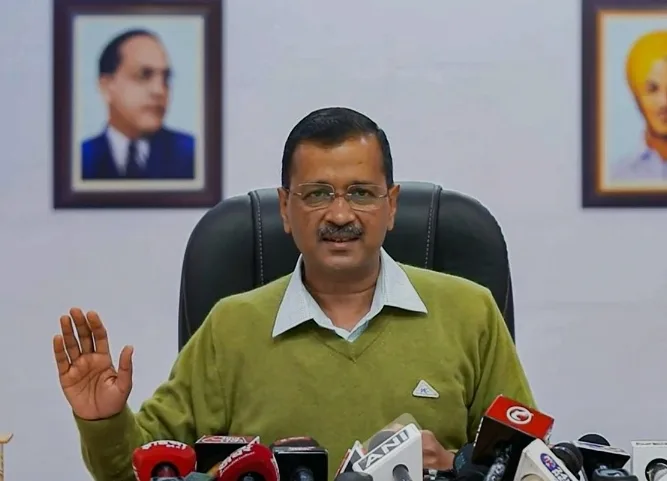A Deep Dive into the Delhi Government Corruption Scandal and its Fallout”

Something unprecedented has happened in India. A sitting chief minister has been arrested. You’re talking about Arvind Kejriwal.
He heads the government in Delhi. He also leads the Aam Aadmi Party. It’s one of the six national parties recognized by the Election Commission of India. So he is an important political player. And as expected, there is backlash. We’ve seen massive protests,
A legal showdown and a lot of accusations flying around. Tonight we are looking at five questions linked to this story. Number one, why has Kejriwal been arrested? It was brewing for a while now.
The Delhi government is accused of corruption in a liquor case. It’s being investigated by multiple agencies. One of them is the ED,
the Enforcement Directorate. This month they named Kejriwal as a conspirator. So they asked him to appear for questioning. But he refused to go. He skipped nine summons by the ED. So last night,
An ED team turned up at his house at around 09:00 p.m. Local time, he was taken into custody. Arvind Krival spent the night in a small cell inside the ED head office. He will remain in ED custody until March 20 eigth. That’s six days.
What is the liquor scam?
In most indian states, governments run liquor shops. It’s a big money spinner for them. But Delhi tried to change that.
Kriwal’s government in Delhi introduced a new liquor policy in 2021. It allowed private players to open liquor stores.
At the same time, government shops were shut. The idea here was twofold. A, to improve customer experience and B, to generate more revenue. At first, it seemed to work. Delhi reported a 27% rise in revenue from liquor. But soon there was trouble.
Delhi’s top bureaucrat flagged issues with this policy. He said the government was running losses. How much? Almost 580 crore rupees, which is $69 million. He also said that Delhi ministers were getting kickbacks. So basically, they were taking money in exchange for liquor licenses. That was a charge. And that’s where the case started.
First, the CBI opened a probe. That’s the Central Bureau of Investigation. They started the probe and then the ED, the Enforcement Directorate. Which brings us to question number three. Is Arvind Kejriwal the only one behind bars in this case?
He isn’t. Delhi’s former deputy chief minister, Manishtha Sodhya is also in jail. So Isendra Jain, another former minister, Sanjay Singh, a party lawmaker. And K. Kavita, a politician from Telangana. She’s the daughter of a former chief minister. So some big names have already been arrested.
What will Kejriwal do next? Yesterday night, his party approached the Supreme Court of India. They wanted to quash his arrest. But today that request was withdrawnSo Kejriwal was presented before a Delhi court
The ED wanted his custody for ten days. They said he was the kingpin of the slicker case. His lawyers rejected this. They said there was no evidence to keep him in jail. The court gave its verdict just a short while ago. Irvin Kejriwal will remain in ED custody for six days.
Which raises a constitutional question. His party says Kejriwal will remain chief minister. But how will he govern from jail?
In the past, chief ministers have resigned before their arrest. Like jail Alitha in Tamil Nadu and Lalu Yadav in Bihar. But Kejriwal has not stepped down. So what does the law say about the situation? Unless he is convicted, there is no obligation to resign. But governing from jail poses logistical challenges.
A chief minister has dozens of meetings every day. But an inmate is allowed only two meetings per week. So how do you navigate that? Plus, the Union government is seeking legal advice on the matter. Some experts say the center could suspend or dismiss him. And do not forget
the question of ethics. Conviction or not, should a jail chief minister continue to govern? It’s likely to raise many concerns. Finally, we have question number five. How will this affect the upcoming elections?